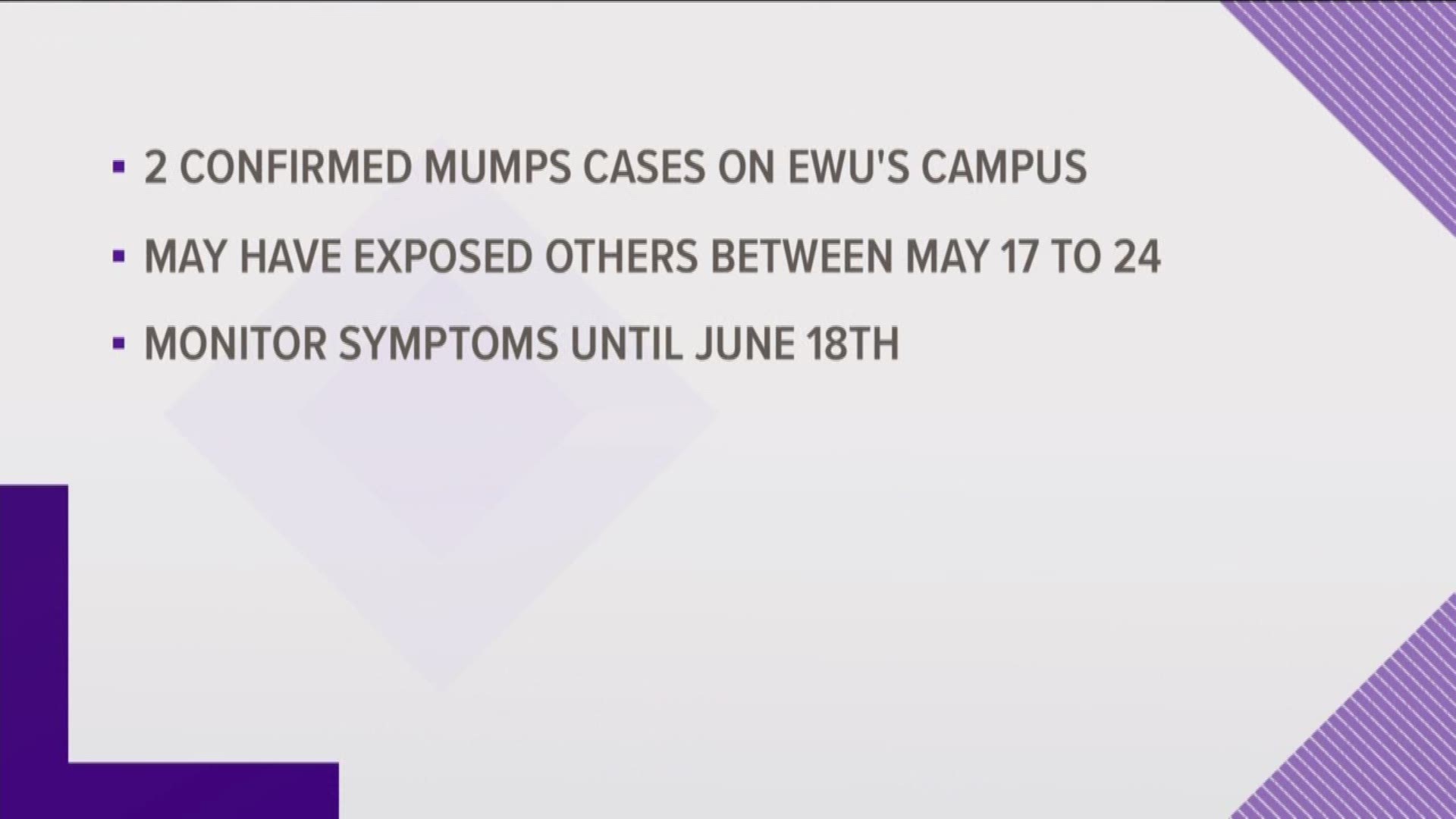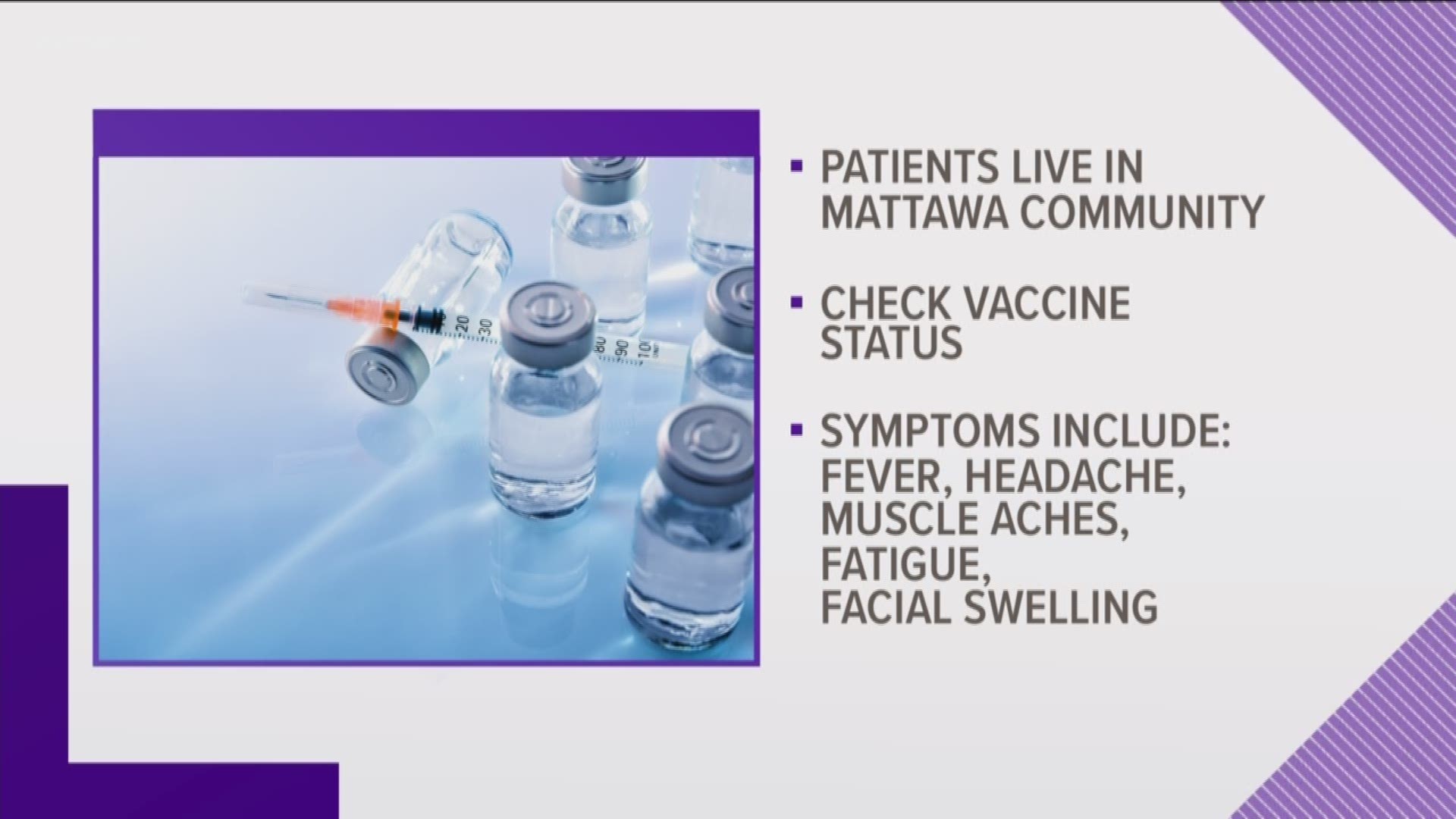CHENEY, Wash. — Two cases of mumps have been confirmed and another is under investigation at Eastern Washington University's campus.
The Spokane Regional Health District said they have confirmed two cases of the contagious virus. These are the first cases of mumps in Spokane County in 2019.
According to Dave Meany, Director of Communications & Media Relations at EWU, the school has alerted students and staff about the cases as a precaution.
In an email sent out to people on campus, a student may have exposed others to the illness between May 17-24. School officials asked that people check their vaccination records and monitor any possible symptoms until June 18.
Mumps is spread through saliva or mucus from the mouth, nose or throat. An infected person can spread the virus by:
1. Coughing, sneezing or talking
2. Sharing items, such as cups or utensils, with others
3. Touching objects or surfaces with unwashed hands that are then touched by others.
The infectious period of mumps is three days before, to five days after, the onset of the most common symptom of mumps, which is swelling and pain of the cheeks and jaw.
Other common symptoms are fever, headache, muscle aches, tiredness and loss of appetite.
To avoid contracting the mumps, people are encouraged to get vaccinated, wash your hands frequently and avoid sharing glasses, utensils, water bottles, cigarettes and makeup.
In 2017, Spokane experienced a mumps outbreak, with more than 250 cases.
This year, measles has been a big concern in Washington. A total of 81 people have been diagnosed with measles in the state.


